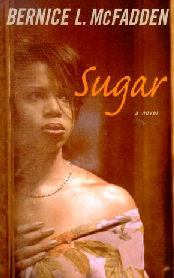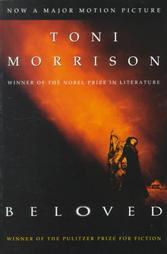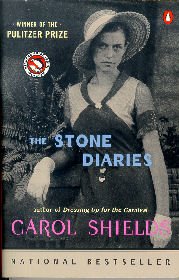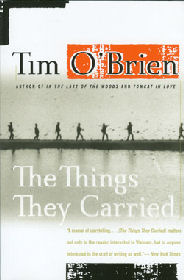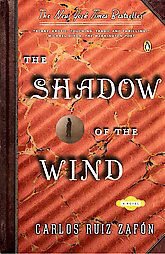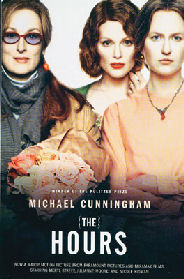Taken from the Fall 2006 issue of The Nubian Chronicles magazine:As a writer, I belong to several online writing and book discussion groups. I think it’s important to stay abreast of news of the publishing industry, to see who’s doing what and for whom, and to have a feeling of camaraderie amongst craftsmen who all have the same goal: to be and stay published. Often, we get into great conversations about books, genres, agents, editors, and book deals. I’ve received an abundance of encouragement, love, and support from the men and women whom I have had the pleasure of meeting in online writing/reading groups. Because of my hectic “life” schedule, I’m often a lurker in the groups, “listening” to conversations and waving a hand and making a comment when the mood hits me. One conversation that has sparked something in me is that of writing book reviews.
In short, many believe that it doesn’t help anyone to write bad reviews; in fact, as writers, we should be fostering a caring community for our fellow writers and if we can’t help promote these fellow writers with positive reviews, we shouldn’t write anything. This notion bothers me on several levels. First, there is a growing disconnection between published authors and hope-to-be-published writers, and as such, I can’t see how we can argue for this caring community if all aren’t willing to participate in it. Second, if many argue for this “everything is good” mentality, the quality of fiction today will suffer because there will be no criteria for judging a work’s merit. Third, if people continue to subscribe to this notion of only writing good reviews, we have to question whether we’ll ever have canon-like literary figures in writing again. Because the publishing industry, at the end of the day, seems to be more about making money by any means necessary than putting out quality books, some writers who wish to receive entrance and to stay within the warm, lovely climate and atmosphere of Publishing Manor write to be published instead of writing to hone their craft and to pen stories they feel gutturally connected to in some way.
There are many who believe that when you or anyone writes a bad review of a book, it is hampering the writer’s pursuit of his or her dream. They shout the familiar adage, “If you have nothing nice to say, you shouldn’t say anything at all.” They cry, “Why must we put down each other? Why can’t we support one another,” to which I ask, “Why can’t criticism or bad reviews be seen as support?” And by support I mean helping a writer learn how to better his or her craft. Most of us, no matter how many novels we write, couldn’t hurt from learning more about the craft of fiction.
I’ve heard others in forums complain that writing is subjective anyway, so it shouldn’t matter if you have something bad to say about a work; in the end, you just may potentially drive a possible reader away from picking up the book. Writing isn’t really subjective. We have a multitude of genres to choose from. We have “formulas” within several types of genre fiction. We have elements of fiction that are found in all stories, and the minute you begin compartmentalizing fiction into various genres, stating formulas for stories, and recognizing a list of fictional elements, you allow someone to jump in and begin assessing the various components within a piece of work to determine if it’s a good story. Characters, ideally, should be well rounded and fleshed out. If they are not, then they are flat. One should be able to critique this, just like they should be able to discuss plot, setting, dialogue, or point of view within a work. If a book is touted as being a fast-paced, edge of your seat ride and you come away wondering if you took a bottle of Tylenol PM on page 1, personally, I think that’s something for others to know. The “others” have minds; they can make the decision by themselves to read or not to read a work.
I have received less-than-stellar reviews; some of them were worthy of my read and my reassessment of my works, and some were obviously meant to hurt and disparage me and my work just because a reviewer had an issue with me personally. As a writer, I have had to put my baby in the hands of an editor, or a best friend, or a publicist, only to be told that the book is great, but the beginning isn’t working for me (and I ADORE the beginning). I have also placed my baby in the hands of editors who have praised the work up and down, loved it, but for one thing: the story didn’t read “black” enough. As a writer, as someone who participates in an art, in a craft to be read and liked (or disliked) by others, I have to expect that I will receive bad reviews. I will receive bad critiques. I will be hurt. I will want to quit because my God, what if they are true, and I’m truly a hack and not a good writer? These are all the things we have to swallow down and try to deal with when we choose to become a member of the writing profession.
Now this doesn’t mean I in any way condone ignorant, hurtful reviews created by others (sometimes other authors, sometimes other authors’ fans and family and friends) to put down a book, its author, or the author’s talent. If a review or a critique is written to fairly and earnestly explain one’s views of a book and what he or she liked, didn’t like, and why he or she didn’t like the book, then I see no harm. When a person writes simply to say a book is stupid, or crap, and it’s obvious there is no merit to the review or critique, then obviously, that will go the way of say…crap.
For me, there are several effects that occur as a result of this need for niceties and “fake support” (is it really support when you can’t say how you truly feel?). One effect is the contradiction between wanting to create this warm, non-threatening, non-critical community in order to foster dreams and being there to offer help to those who are still aspiring to be published once an author has “made” it. Time and time again, I have come across authors who are as congenial as can be until they are asked “How did you do it? How did you break in?” I know that writing is a highly competitive field and because of that, writers have to be competitive, have to reach the goal of publishdom, but I do not think this means we have to be closed-off from each other. I edit novels. I read synopses. I help friends write query letters. Some have actually received representation or have received manuscript requests by publishers as a direct result of my aid. I do this despite the fact that I am trying to get back into the game. Some writers have the mentality that once they get in, at any second they can be pushed right back out of the wordy gates of publishdom, and in some ways, this is true. Once they get in, they do all they can to stay in, and helping someone, especially someone who might be a better writer, who might write in their genre, is not conducive to staying within the publishdom confines. What if the newbie gets big and you can’t compete?
Personally, I have experienced the sting of helping others only to be hurt in the end when I do not receive credit for my help, or when someone uses my services, quits me, and then hops to someone else and use my “services” to their advantage. Despite the stings (and probably, in part, to my detriment), I continue to help others. Why? Two reasons. Both selfish. One: everything comes back full circle, and helping others may eventually lead to someone helping me or something good happening to me. Two: I love helping others and doing so makes me feel good about myself. I’m not saying that we all have to be givers to the point where we never have time to actually write, but if you have friends, if you belong to a community of writers and someone asks, for example, for you to read his/her synopsis, why not read it? If someone asks you for time to critique some work and you have the time, why not help? If you have expertise in getting an agent or getting a deal, why not share the information?
Charles Lamb and Samuel Coleridge. Coleridge and William Wordsworth. Percy Bysshe Shelley and Lord Byron. Henry David Thoreau and Ralph Waldo Emerson. F. Scott Fitzgerald and Ernest Hemingway. Toni Morrison and Toni Cade Bambara and Gayl Jones. Alice Walker and Muriel Rukeyser. The groups of writers above, who are either within or on the fringe of the canon, have had vested interest in helping each other succeed. Morrison mentored Bambara and Jones. Rukeyser did the same with Walker. Emerson and Thoreau wrote letters to each other and also read and critiqued each other’s work. These are just a few examples; however, one might begin to argue—as I would—that perhaps one of the big keys to success is the communal aspect of the “writerhood.” Having nurturing relationships with writers in which constructive criticism is given, in which one writer helps another might actually be beneficial to writers.
I understand that in our sue-happy, plagiarizing society, writers might be nervous about looking at anyone’s work for fear that they might be called stealers of ideas, but most aspiring-to-be-published writers do not want to steal thunder or fear their work will be stolen; they merely would like a piece of the publishing pie for themselves. We can’t cry “No bad reviews” under the guise of our needing to be a community of writers and in the same breath ignore an askance of help for whatever reason we may have. We have to be communal and helpful and caring all the way around, in every facet, or we have to be cutthroat competitors, working toward the goals of self without helping others and without receiving help from others. I think the former is definitely the way we need to be moving toward.
Another effect that occurs because of our “be kind to others” mentality is the possible decline in the quality of writing that is written and ultimately published. Simply put, if we’re working so hard to be nice and to keep from hurting feelings by not stating what might be wrong with a work, how will we know what “quality” fiction is? What will be the new definition of good, strong fiction? What is the good strong, fiction? These days, various genres have the publishing industry on lock; though the houses state they want fresh and new and different, they continuously publish the same type of work, at times—it seems, the same work with a new title and flashy cover. Where is the fresh, the new, the different?
When we, writers and readers, do not voice our thoughts, do not say, please publish something different, please give us choices, we do not get different. Nowhere is this more evident than in African American fiction of today. We are stuck in an urban/street fiction and erotic (though I would argue more toward porn) renaissance and everywhere you turn, there are major publishing houses creating AA imprints or there are small publishing houses that feature street/urban literature that are being brought into major publishing houses as imprints. About ten years ago, we were in a “sistergirl” renaissance and were inundated with stories of four black women who were friends who went through things, typically things pertaining to men. I adored those novels; I still do. There is some urban fiction that I enjoy, too, but when we limit the variety of writing for writers to write and for readers to read, how do we gauge quality fiction? Where do we find it?
There are those that may and will argue that we need the street/urban lit voice, and I would not argue otherwise; however, I will argue that when we hold up one facet of our experience and that becomes the epitome of the culture, stereotypes begin to emerge. In an age when sex, gangs, violence, gold diggers, tricks on the corner, teen chicks getting good with high rollers, and soft porn being dubbed erotica become the mainstay in the African American reader’s diet (both adults and teens and younger), it’s only a matter of time that those images become the standard for which we will all be judged. I thank God for the Brandon Masseys, the Tananarive Dues, the ZZ Packers, the Bernice McFaddens, the Colson Whiteheads, Edwidge Danticats, the Karen Siplins, and the Daniel Blacks of the world who are being published, who do show me that, though there seems to be a limit of what African Americans are allowed to publish, there are those who still manage to squeak in and show that quality fiction exists.
This leads to another effect that is just as important as the above, but may not be discussed as much; whom will we hold up as the great writers of our time? What works, authors will we teach in our schools? If the quality of fiction decreases because we’re “too kind,” then how can we possibly select appropriate works to teach? How can we set standards for good fiction? I am saddened that in today’s publishing climate, writers like Toni Morrison, Ralph Ellison, and Langston Hughes would probably not get published. Their writing would be too dark (read: deep. read: not understandable.). Their writing would be too highbrowed. Their writing would actually make readers think. Their writing would not be excitable because of this. Their writing would not entertain because of this. These are complaints that I occasionally hear about in regards to these types of stories, stories that have been out for decades. I can only imagine what would be said of them today. Of course, in a few years, work like these might become in vogue, like during the Harlem Renaissance, like our previous “sistergirl” renaissance, like our now urban/street and erotica renaissances. And despite the fact that literature, like everything, happens in cycles, I can’t help but to worry about the state of fiction, particularly African American fiction and where we are going as writers and as readers.
Having said everything above this sentence, I do want to reiterate that I’m not saying we should become a bitchy society of writers, nor should we go out of our way to write negative reviews, but how are we expected to grow as writers, to learn our craft, and to mold new stories to entice readers if we are hell bent on not learning from what might actually need work in our writing? In addition to that, I’m not saying that all writers are mean-spirited people who go out of their way to not assist others. Many great writers I have met from Yahoogroups like ChickLit, ReadersnFriends, RAW4ALL, and SisterfriendWriters have been very forthcoming and loving toward my growth as a writer. This essay is written because as a writer, as a reader, as a friend to many writers and readers, I am concerned for the future of those who love to read and especially those who want to have the opportunity to put multi-faceted words in the hands of those readers.



